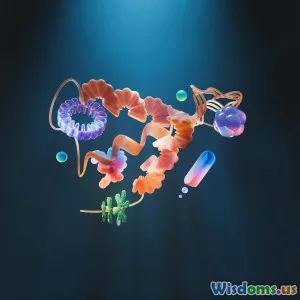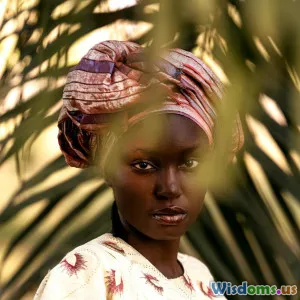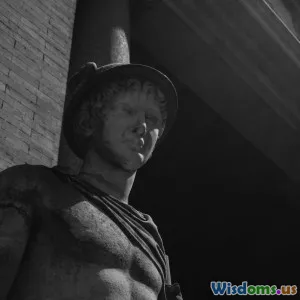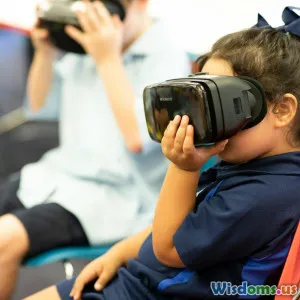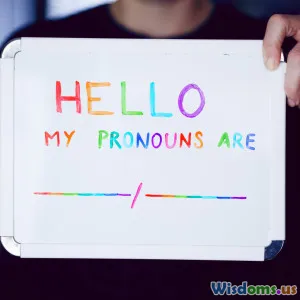
The Relevance of Myths Today
7 min read Explore how ancient myths continue to shape culture, values, and identity in today's world. (0 Reviews)
The Relevance of Myths Today
Introduction
For millennia, myths have served as humanity's earliest narratives—tales that weave the fabric of cultures, explain natural phenomena, and articulate our deepest fears and hopes. Yet, in an era dominated by science and technology, many might dismiss myths as mere relics of a prehistoric mindset. But these ancient stories are far from obsolete. Instead, they offer powerful insights into human nature, identity, and societal values that remain relevant today. Why do myths endure? What can they teach us about ourselves even now? This article delves into the enduring significance of myths in the 21st century.
Understanding Myths: More Than Just Stories
Myths are often defined as traditional tales explaining origins or societal norms through gods, heroes, or supernatural events. However, they are more than bedtime stories or folklore; myths function as symbolic frameworks encoding communal knowledge and cultural values.
Joseph Campbell, the noted mythologist, highlighted the "monomyth" or "hero’s journey," describing the universal structure underlying myths worldwide. This archetype reflects fundamental psychological and existential themes—identity, transformation, and overcoming adversity—which continue to resonate across cultures.
Myths as Cultural Identity Markers
Preserving Heritage and Traditions
Myths anchor communities in a shared history that surpasses documented facts. For indigenous groups like the Navajo, Dreamtime stories of Australian Aboriginal peoples, or Norse sagas, myths are living traditions connecting past, present, and future.
For example, the Hawaiian creation myth of Pele, the goddess of volcanoes, links geological phenomena with cultural reverence, informing both spiritual life and environmental stewardship. Through such stories, culture transcends time, binding people with a sense of belonging and continuity.
Shaping Moral and Ethical Codes
Myths often contain embedded moral lessons: from Greek myths warning against hubris, such as the tale of Icarus, to Hindu epics like the Mahabharata which explore dharma (duty and righteousness). Modern societies still draw on these narratives to frame ethical discussions; educational curricula incorporate mythological stories to engage students with complex moral quandaries.
Psychological and Therapeutic Relevance
Jungian Archetypes and the Collective Unconscious
Carl Jung proposed that myths are expressions of universal archetypes within the collective unconscious. These archetypes—like the Trickster, the Wise Old Man, or the Hero—reflect intrinsic psychological patterns that help individuals comprehend their own experiences.
Engaging with mythological themes in psychotherapy can aid self-awareness and healing. For instance, Joseph Campbell’s examination of Joseph’s story in the Old Testament helps individuals embrace transformational journeys amidst personal crises.
Myths in modern media and identity formation
The continued popularity of myth-based narratives in books, movies, and video games (e.g., Marvel’s Thor, Rick Riordan’s Percy Jackson series) highlights myths’ ongoing role in identity formation. These retellings provide frameworks for exploring contemporary issues such as heroism, belonging, and moral complexity, making myths relevant for younger generations.
Myths as Tools for Social Commentary
Addressing Contemporary Issues Through Ancient Themes
Modern storytellers often reimagine myths to reflect social justice issues, gender dynamics, and environmental concerns. For example, Margaret Atwood’s "The Penelopiad" offers a feminist perspective on Homer’s Odyssey, challenging traditional patriarchal narratives.
Myths can also serve as metaphors for climate change, political struggles, or technological anxieties, thus facilitating reflection and dialogue on urgent global issues.
Fostering Cross-Cultural Understanding
The universal motifs present in myths encourage empathy across cultures. Recognizing shared mythic themes—like creation, flood, or apocalypse stories—highlights common human concerns despite diverse traditions, promoting intercultural understanding in an increasingly interconnected world.
Myths in Education and Popular Culture
Integrating mythic studies into education nurtures critical thinking, creativity, and multicultural literacy. For instance, examining how myths persist in branding (Nike—from the Greek goddess of victory) or place names reinforces linguistic and historical awareness.
Popular culture continues to thrive on mythic archetypes, with blockbuster films like "Star Wars" drawing heavily on Campbell’s hero’s journey. This intersection ensures myths remain dynamic, accessible, and embedded in everyday life.
Conclusion
Ancient myths are far from merely archaic tales confined to dusty tomes. They are living narratives that continue to shape identities, inform ethics, and offer deep psychological insights. In an era of rapid change and complex challenges, myths remind us of our shared humanity, inspire resilience, and enrich our understanding of life’s mysteries. Embracing and reinterpreting myths today connects us to a timeless dialogue spanning cultures and centuries—inviting us to find meaning, courage, and hope in the stories we inherit and create.
Whether as allegories, psychological tools, or cultural cornerstones, myths remain profoundly relevant, urging us to explore not only where we come from but who we are and who we might become.
“Myths are public dreams, dreams are private myths.” — Joseph Campbell
Rate the Post
User Reviews
Popular Posts








